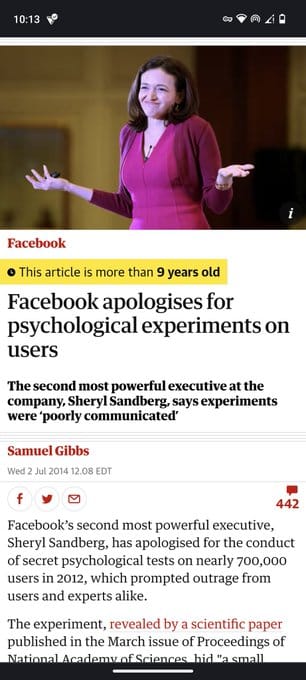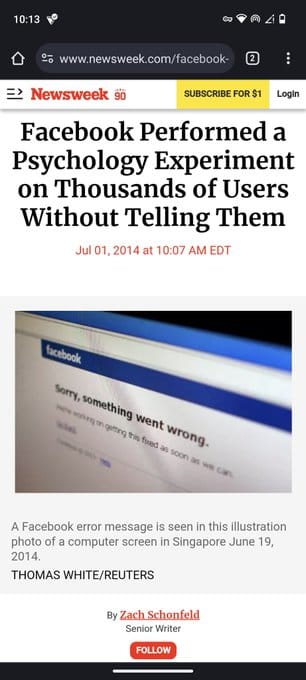Facebook's 2012 Controversy: Ethical Dilemmas in Psychological Experimentation

Introduction
In 2012, Facebook found itself embroiled in a contentious lawsuit over conducting psychological experiments on its users. The social media giant faced significant backlash and legal challenges for its study aimed at mood manipulation, raising serious ethical questions about the boundaries of user consent and privacy in the digital age.
The Experiment
Facebook's experiment, conducted in collaboration with researchers from Cornell and the University of California, involved subtly altering the emotional content of users' News Feeds. The goal was to assess if exposure to more positive or negative posts would affect the users' own posting behavior. Approximately 700,000 users unknowingly participated in the week-long study.
The Backlash
The revelation of this experiment sparked outrage among users and privacy advocates. The lawsuit claimed that Facebook had manipulated users' emotions without their consent, breaching ethical standards and violating user trust. Critics argued that the study constituted a deceptive practice, as participants were not informed about their involvement in a psychological experiment.
Legal and Ethical Implications
The lawsuit against Facebook highlighted the need for clear ethical guidelines and informed consent in online experiments. It raised questions about the extent to which social media platforms could use user data for research purposes. The controversy also led to discussions about the transparency of user agreements and the extent of data usage users unwittingly consent to.

Facebook's Defense
Facebook defended its actions by stating that the experiment was covered under the terms of service that users agreed to upon signing up. The company argued that the study was part of its ongoing efforts to improve the user experience and that no user data was improperly used or disclosed.
Outcome and Impact
The lawsuit prompted Facebook to revise its research practices, placing greater emphasis on ethical considerations and user consent. The controversy also served as a catalyst for broader discussions about data privacy, user rights, and the ethical responsibilities of tech companies.




Conclusion
Facebook's 2012 lawsuit for conducting psychological experiments on users without explicit consent stands as a pivotal moment in the tech industry. It underscored the importance of ethical conduct, transparency, and respect for user privacy in digital platforms. The case continues to inform debates on the responsible use of user data and serves as a cautionary tale for tech companies about the consequences of overstepping ethical boundaries.






